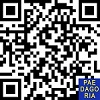ENVIRONMENTAL PROBLEM-BASED LEARNING BOOTS SKILLS IN RIVER PROBLEM SOLVING AND ECOLOGICAL AWARENESS
Abstract
Abstrak: Peningkatan permasalahan sungai semakin kompleks memerlukan pembelajaran kontekstual yang dapat mengaitkan pembelajaran pada isu-isu lingkungan nyata dan relevan. Penelitian ini bertujuan untuk mengetahui perbedaan kemampuan pemecahan masalah dan kesadaran ekologis diri siswa melalui Environmental-Oriented Problem-Based Learning (EoPBL) berdasarkan indikator variabel dan jenis kelamin siswa. Jenis penelitian quasi experimental melibatkan siswa kelas X3 dan X5 di SMA Islam Kepanjen, Kabupaten Malang, Indonesia. Pengumpulan data menggunakan tes dan kuesioner untuk menilai kemampuan pemecahan masalah dan kesadaran ekologis diri. Hasil penelitian bahwa uji non parametrik Mann-Whitney U menunjukkan adanya perbedaan yang signifikan pada kemampuan pemecahan masalah (sig. (2-tailed) = 0.000 < 0.05) dan kesadaran ekologis diri (sig. (2-tailed) = 0.002 < 0.05) antara kelas eksperimen dan kontrol. Namun, tidak ada perbedaan yang signifikan dalam kemampuan pemecahan masalah (sig. (2-tailed) = p > 0.05) dan kesadaran ekologis diri (sig. (2-tailed) = p > 0.05) berdasarkan jenis kelamin pada kelompok eksperimen dan kelas kontrol. Implementasi model EoPBL memberikan perbedaan signifikan kemampuan pemecahan masalah dan kesadaran ekologis siswa kelas eksperimen, nilai rata-rata indikator variabel 90.16 dan 79.14 lebih tinggi dibandingkan siswa kelas kontrol 68.45 dan 70.92 yang menggunakan model pembelajaran konvensional. Perbedaan jenis kelamin siswa mempengaruhi tidak adanya perbedaan signifikan antara siswa laki-laki dan siswa perempuan.
Abstract: Increasingly complex river problems require contextual learning that can link learning to real and relevant environmental issues. This study aims to determine the differences in problem solving skills and ecological self-awareness of students through Environmental-Oriented Problem-Based Learning (EoPBL) based on variable indicators and student gender. The quasi-experimental study involved students from classes X-3 and X-5 at Kepanjen Islamic High School in Malang Regency, Indonesia. Data were collected using tests and questionnaires to assess problem-solving and self-ecological awareness abilities. The results showed that the Mann-Whitney U non-parametric test showed a significant difference in problem solving ability (sig. (2-tailed) = 0.000 < 0.05) and self-ecological awareness (sig. (2-tailed) = 0.002 < 0.05) between the experimental and control classes. However, there were no significant differences in problem-solving abilities (sig. (2-tailed) = p > 0.05) and self-ecological awareness (sig. (2-tailed) = p > 0.05) based on gender within the experimental and control classes. The implementation of the EoPBL model provides a significant difference in the problem solving ability and ecological awareness of experimental class students, the average value of variable indicators 90.16 and 79.14 is higher than the control class students 68.45 and 70.92 who use conventional learning models. The difference in student gender affects the absence of significant differences between male students and female students.Keywords
Full Text:
PDFReferences
Acosta Castellanos, P. M., & Queiruga-Dios, A. (2022). From environmental education to education for sustainable development in higher education: a systematic review. International Journal of Sustainability in Higher Education, 23(3). https://doi.org/10.1108/IJSHE-04-2021-0167
Afifah, N., Putra, A. K., & Haqqi, A. H. (2024). Virtual Reality Integration in Geography : Meningkatkan Environmental Problem Solving Ability Siswa pada Kajian Konservasi DAS. 8(1), 11–22. https://doi.org/10.23887/jear.v8i1.67943
Al Balushi, H. M., & Ambusaidi, A. K. (2023). The influence of environmental education on Omani students self-reported environmental attitudes and behaviours. International Research in Geographical and Environmental Education, 32(2). https://doi.org/10.1080/10382046.2022.2154976
Alkair, S., Ali, R., Abouhashem, A., Aledamat, R., Bhadra, J., Ahmad, Z., Sellami, A., & Al-Thani, N. J. (2023). A STEM model for engaging students in environmental sustainability programs through a problem-solving approach. Applied Environmental Education and Communication, 22(1). https://doi.org/10.1080/1533015X.2023.2179556
Amin, S., Utaya, S., Bachri, S., Sumarmi, & Susilo, S. (2020). Effect of problem-based learning on critical thinking skills and environmental attitude. Journal for the Education of Gifted Young Scientists, 8(2). https://doi.org/10.17478/jegys.650344
Anggraeni, D. M., Prahani, B. K., Suprapto, N., Shofiyah, N., & Jatmiko, B. (2023). Systematic review of problem based learning research in fostering critical thinking skills. Thinking Skills and Creativity, 49. https://doi.org/10.1016/j.tsc.2023.101334
Ayerbe-López, J., & Perales-Palacios, F. J. (2023). Evaluating a Secondary Education Urban Ecology Project within the Framework of a Problem-Based Learning Methodology. Education Sciences, 13(9). https://doi.org/10.3390/educsci13090915
Badriah, L., Mahanal, S., Lukiati, B., & Saptasari, M. (2023). Collaborative Mind Mapping-Assisted RICOSRE to Promote Students’ Problem-Solving Skills. Participatory Educational Research, 10(4). https://doi.org/10.17275/per.23.65.10.4
Buana, R. T., & Putra, A. K. (2023). Peningkatan Kemampuan Berpikir Spasial: Implementasi Model Problem Based Learning melalui Pendekatan Self Efficacy Berbantuan WebGIS Inarisk. Journal of Education Action Research, 7(3), 310–319. https://doi.org/10.23887/jear.v7i3.63881
Carrió Llach, M., & Llerena Bastida, M. (2022). Exploring innovative strategies in problem based learning to contribute to sustainable development: a case study. International Journal of Sustainability in Higher Education, 24(9). https://doi.org/10.1108/IJSHE-07-2021-0296
Clayton, S. D., Pihkala, P., Wray, B., & Marks, E. (2023). Psychological and Emotional Responses to Climate Change among Young People Worldwide: Differences Associated with Gender, Age, and Country. Sustainability (Switzerland), 15(4). https://doi.org/10.3390/su15043540
Cordova, M. R., Nurhati, I. S., Shiomoto, A., Hatanaka, K., Saville, R., & Riani, E. (2022). Spatiotemporal macro debris and microplastic variations linked to domestic waste and textile industry in the supercritical Citarum River, Indonesia. Marine Pollution Bulletin, 175. https://doi.org/10.1016/j.marpolbul.2022.113338
Dean, J. H., Shanahan, D. F., Bush, R., Gaston, K. J., Lin, B. B., Barber, E., Franco, L., & Fuller, R. A. (2018). Is nature relatedness associated with better mental and physical health? International Journal of Environmental Research and Public Health, 15(7). https://doi.org/10.3390/ijerph15071371
Deng, X., Chen, S., Li, X., Tan, C., Li, W., Zhong, C., Mei, R., & Ye, M. (2023). Gender differences in empathy, emotional intelligence and problem-solving ability among nursing students: A cross-sectional study. Nurse Education Today, 120. https://doi.org/10.1016/j.nedt.2022.105649
Dwikoranto, Dawana, I. R., & Setiani, R. (2023). Validity of Teaching Modules with Problem-Based Learning (PBL) Model Assisted by E-Book to Improve Problem-Solving Skills on Renewable Energy Material and Implementation of Independent Learning Curriculum. Journal of Physics: Conference Series, 2623(1). https://doi.org/10.1088/1742-6596/2623/1/012015
Fadli, A., & Irwanto. (2020). The effect of local wisdom-based ELSII learning model on the problem solving and communication skills of pre-service islamic teachers. International Journal of Instruction, 13(1). https://doi.org/10.29333/iji.2020.13147a
Fitri, L. S., Rosyida, F., Putra, A. K., Wirahayu, Y. A., & Selviana, N. (2022). The Effect of Geographical Inquiry Learning Using SETS Approach to Complex Problem-Solving Abilities on Environmental Conservation Material. Pegem Egitim ve Ogretim Dergisi, 12(4). https://doi.org/10.47750/pegegog.12.04.07
Fitriani, A., Zubaidah, S., Susilo, H., & Al Muhdhar, M. H. I. (2020). The effects of integrated problem-based learning, predict, observe, explain on problem-solving skills and self-efficacy. Eurasian Journal of Educational Research, 2020(85). https://doi.org/10.14689/ejer.2020.85.3
Ghani, A. S. A., Rahim, A. F. A., Yusoff, M. S. B., & Hadie, S. N. H. (2021). Effective Learning Behavior in Problem-Based Learning: a Scoping Review. In Medical Science Educator (Vol. 31, Issue 3). https://doi.org/10.1007/s40670-021-01292-0
Granda, L., Moya-Fernández, P. J., Soriano-Miras, R. M., & González-Gómez, F. (2024). Pro-environmental behaviour in household water use. A gender perspective. Sustainable Water Resources Management, 10(2). https://doi.org/10.1007/s40899-023-01027-6
Hobri, Ummah, I. K., Yuliati, N., & Dafik. (2020). The effect of jumping task based on creative problem solving on students’ problem solving ability. International Journal of Instruction, 13(1). https://doi.org/10.29333/iji.2020.13126a
Hutsalo, L., Skliar, I., Abrosimov, A., Kharchenko, N., & Ordanovska, O. (2024). Strategies for developing critical thinking and problem-based learning in the modern educational environment. Multidisciplinary Science Journal, 6. https://doi.org/10.31893/multiscience.2024ss0209
Islam, M. N., Sumarmi, S., Putra, A. K., Sugiyati, P., & Salsabilah, S. (2021). The Effect of Interactive Blended-Problem Based Learning Assisted Virtual Classroom on Critical Thinking Skills of Students of The Society Era 5.0. Jurnal Geografi Gea, 21(2). https://doi.org/10.17509/gea.v21i2.38862
Kassymova, G., Akhmetova, A., Baibekova, M., Kalniyazova, A., Mazhinov, B., & Mussina, S. (2020). E-learning environments and problem-based learning. International Journal of Advanced Science and Technology, 29(7 Special Issue).
Kurokawa, H., Igei, K., Kitsuki, A., Kurita, K., Managi, S., Nakamuro, M., & Sakano, A. (2023). Improvement impact of nudges incorporated in environmental education on students’ environmental knowledge, attitudes, and behaviors. Journal of Environmental Management, 325. https://doi.org/10.1016/j.jenvman.2022.116612
Kuvac, M., & Koc, I. (2019). The effect of problem-based learning on the environmental attitudes of preservice science teachers. Educational Studies, 45(1). https://doi.org/10.1080/03055698.2018.1443795
Lorenza, M., Setyawan, D., & Miftahussa’adiah. (2023). Impelementasi Model Pembelajaran Berbasis Masalah terhadap Keterampilan Kolaborasi Siswa SMK. Paedagoria: Jurna; Kajian, Penelitian Dan Pengembangan Kependidikan, 14(3), 352–355. https://doi.org/10.31764/paedagoria.v14i3.16219
Mahsup, Muhardini, S., Sahara, A., & Solehah, A. (2024). Development Of Problem Based Investigation Model Learning Tools Based On Local Wisdom To Improve Students’ Critical Thinking Skills. Paedagoria : Jurnal Kajian, Penelitian Dan Pengembangan Kependidikan, 15(3), 390–396. https://doi.org/10.37251/isej.v5i2.985
Miao, R. E., & Cagle, N. L. (2020). The role of gender, race, and ethnicity in environmental identity development in undergraduate student narratives. Environmental Education Research, 26(2). https://doi.org/10.1080/13504622.2020.1717449
Mohd Yatim, S. S. K., Saleh, S., Zulnaidi, H., & Yatim, S. A. M. (2022). Effects of integrating a brain-based teaching approach with GeoGebra on problem-solving abilities. International Journal of Evaluation and Research in Education, 11(4). https://doi.org/10.11591/ijere.v11i4.22873
Osim, E. E., Goddymkpa, C. P., & Umoffong, N. J. (2020). Community preparation for domestic wastewater management development in Jakarta. Int J Innov Sci Res Technol, 5(7).
Putra, A. K., Khalidy, D. Al, & Irawan, L. Y. (2024). Student Perceptions of Environmental Sustainability : Insights into Green Campus Innovations and Geospatial Analysis at Universitas Negeri Malang. Visions For Sustainability, 22(June), 1–39. https://doi.org/10.13135/2384-8677/10250
Putra, A. K., Purwanto, Islam, M. N., Hidayat, W. N., & Fahmi, M. R. (2022). Development Of Mobile Virtual Field Trips In Ijen Crater Geosites Based On 3600 Auto Stereoscopic And Geospatial Technology As Geography Learning Media. Geojournal of Tourism and Geosites , 41(2). https://doi.org/10.30892/GTG.41216-850
Putra, A. K., Sumarmi, A. S., Fajrilia, A., Islam, M. N., & Yembuu, B. (2021). Effect of Mobile-Augmented Reality (MAR) in Digital Encyclopedia on The Complex Problem Solving and Attitudes of Undergraduate Student. International Journal of Emerging Technologies in Learning, 16(7). https://doi.org/10.3991/ijet.v16i07.21223
Putra, A. K., Sumarmi, Deffinika, I., & Islam, M. N. (2021). The effect of blended project-based learning with stem approach to spatial thinking ability and geographic skill. International Journal of Instruction, 14(3). https://doi.org/10.29333/iji.2021.14340a
Qazi, A., & Al-Mhdawi, M. K. S. (2023). Exploring dependencies among global environmental, socioeconomic, and technological risks. Environmental Impact Assessment Review, 98. https://doi.org/10.1016/j.eiar.2022.106912
Rachman, I., Sugimaru, C., & Matsumoto, T. (2020). Use of Problem Based Learning (PBL) Model To Improve Learning Outcomes in Environmental Education. Journal of Environmental Science and Sustainable Development, 3(1), 114–141. https://doi.org/10.7454/jessd.v3i1.1039
Rachmawati, V. P., & Rosy, B. (2022). Pengaruh Model Pembelajaran Problem Based Learning Terhadap Hasil Belajar Siswa Di Masa Pandemi Covid-19. Paedagoria : Jurnal Kajian, Penelitian Dan Pengembangan Kependidikan, 13(2), 187. https://doi.org/10.31764/paedagoria.v13i2.10530
Ridhwan, Sumarmi, Ruja, I. N., Utomo, D. H., & Sari, R. M. (2020). Measuring students environmental problem solving ability across gender and school differences using paper based testing. International Journal of Emerging Technologies in Learning, 15(13). https://doi.org/10.3991/ijet.v15i13.11709
Rimba, A. B., & Hirabayashi, Y. (2023). Interlinkages of Water-Related SDG Indicators Globally and in Low-Income Countries. Water (Switzerland), 15(4). https://doi.org/10.3390/w15040613
Rivera Maulucci, M. S. (2023). Pathways to Sustainability: Examples from Science Teacher Education. https://doi.org/10.1007/978-3-031-13536-1_6
Riyadi, B. S., Alhamda, S., Airlambang, S., Anggreiny, R., Anggara, A. T., & Sudaryat. (2020). Environmental damage due to hazardous and toxic pollution: A case study of citarum river, west java, Indonesia. International Journal of Criminology and Sociology, 9. https://doi.org/10.6000/1929-4409.2020.09.211
Rizal, S., Putra, A. K., Suharto, Y., & Wirahayu, Y. A. (2022). Creative Thinking And Process Science Skill: Self-Organized Learning Environment On Watershed Conservation Material. Jurnal Pendidikan IPA Indonesia, 11(4). https://doi.org/10.15294/jpii.v11i4.39571
Rosa, C. D., Larson, L. R., Collado, S., Cloutier, S., & Profice, C. C. (2023). Gender Differences in Connection to Nature, Outdoor Preferences, and Nature-Based Recreation Among College Students in Brazil and the United States. Leisure Sciences, 45(2). https://doi.org/10.1080/01490400.2020.1800538
Roxas, G. K. T. (2023). “Self-care is being attentive to yourself”: using assemblages to examine discursive-material practices of self-care among Filipino university students. International Journal of Qualitative Studies on Health and Well-Being, 18(1). https://doi.org/10.1080/17482631.2023.2247619
Safitri, D., Fahrurrozi, Nurhasanah, N., Marini, A., Subandi, O. U., Tadjuddin, S., Wirasti, M. K., & Kasirah, I. (2022). The Effect of Eco-label and Renewable Energy Projects Knowledge on Environmental Awareness for Elementary School Students. International Journal of Energy Economics and Policy, 12(3). https://doi.org/10.32479/ijeep.13037
Salsabila, T. I., Putra, A. K., & Matos, T. (2022). Mobile Virtual Field Trip and Geography Education: Potential Exploration of Complex Problem Solving and Spatial Intelligence Capabilities. International Journal of Interactive Mobile Technologies, 16(24). https://doi.org/10.3991/ijim.v16i24.36157
Silviariza, W. Y., Sumarmi, Utaya, S., Bachri, S., & Handoyo, B. (2023). Development of Evaluation Instruments to Measure the Quality of Spatial Problem Based Learning (SPBL): CIPP Framework. In International Journal of Instruction (Vol. 16, Issue 2). https://doi.org/10.29333/iji.2023.16223a
Simanjuntak, M. P., Hutahaean, J., Marpaung, N., & Ramadhani, D. (2021). Effectiveness of problem-based learning combined with computer simulation on students’ problem-solving and creative thinking skills. International Journal of Instruction, 14(3). https://doi.org/10.29333/iji.2021.14330a
Singha, R., & Singha, S. (2024). Application of Experiential, Inquiry-Based, Problem-Based, and Project-Based Learning in Sustainable Education. https://doi.org/10.4018/978-1-6684-9859-0.ch006
Sumarmi, Bachri, S., Baidowi, A., & Aliman, M. (2020). Problem-based service learning’s effect on environmental concern and ability to write scientific papers. International Journal of Instruction, 13(4). https://doi.org/10.29333/iji.2020.13411a
Sumarmi, Putra, A. K., Mutia, T., Masruroh, H., Rizal, S., Khairunisa, T., Arinta, D., Arif, M., & Ismail, A. S. (2024). Local Wisdom for Global Challenges: Memayu Hayuning Bawono as a Model for Sustainable Environmental Practices. International Journal of Sustainable Development and Planning, 19(2). https://doi.org/10.18280/ijsdp.190210
Sumarmi, Putra, A. K., Mutia, T., Sahrina, A., & Osman, S. (2024). A technocreativity learning model based on environmental volunteers for waste management. Visions For Sustainability, 21, 67–95. https://doi.org/10.13135/2384-8677/9499
Suriadikusumah, A., Mulyani, O., Sudirja, R., Sofyan, E. T., Maulana, M. H. R., & Mulyono, A. (2021). Analysis of the water quality at Cipeusing river, Indonesia using the pollution index method. Acta Ecologica Sinica, 41(3). https://doi.org/10.1016/J.CHNAES.2020.08.001
Suryawati, E., Suzanti, F., Zulfarina, Putriana, A. R., & Febrianti, L. (2020). The implementation of local environmental problem-based learning student worksheets to strengthen environmental literacy. Jurnal Pendidikan IPA Indonesia, 9(2). https://doi.org/10.15294/jpii.v9i2.22892
Talema, A. (2023). Causes, negative effects, and preventive methods of water pollution in Ethiopia. In Quality Assurance and Safety of Crops and Foods (Vol. 15, Issue 2). https://doi.org/10.15586/qas.v15i2.1271
Todd, E. (2020). Food-borne disease prevention and risk assessment. In International Journal of Environmental Research and Public Health (Vol. 17, Issue 14). https://doi.org/10.3390/ijerph17145129
Yousaf, Y., Shoaib, M., Hassan, M. A., & Habiba, U. (2023). An intelligent content provider based on students learning style to increase their engagement level and performance. Interactive Learning Environments, 31(5). https://doi.org/10.1080/10494820.2021.1900875
DOI: https://doi.org/10.31764/paedagoria.v15i4.25866
Refbacks
- There are currently no refbacks.
Copyright (c) 2024 Evalia Nurul Kholifah, Alfyananda Kurnia Putra, Batchuluun Yembuu

This work is licensed under a Creative Commons Attribution-ShareAlike 4.0 International License.
Paedagoria : Jurnal Kajian, Penelitian dan Pengembangan Kependidikan
Fakultas Keguruan & Ilmu Pendidikan | Universitas Muhammadiyah Mataram.
_______________________________________________
 | Paedagoria : Jurnal Kajian, Penelitian dan Pengembangan Kependidikan |
______________________________________________
CURRENT INDEXING:
EDITORIAL OFFICE:


















